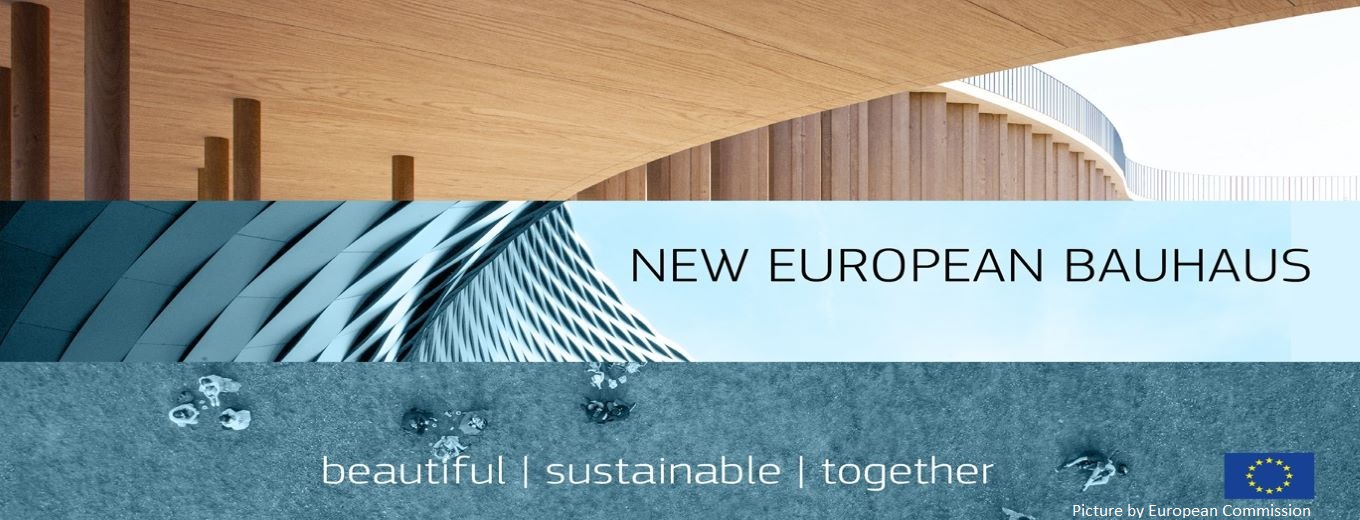The Commission plans to use Horizon Europe funding for the New European Bauhaus while the Parliament demands a long-term funding solution.
Two years ago, Commission President Von der Leyen announced the initiative of the New European Bauhaus (NEB) during her State of the Union Speech. The NEB aims to bring together various actors from architecture, industry, design, arts and science to foster radical innovation while reflecting cultural and societal changes in everyday life by building a sustainable, aesthetic, inclusive and resilient society.
On 15 September 2021, the European Commission (EC) adopted a communication initiating the NEB. However, to date, there is still no long-term funding scheme available for the initiative, which should be the ‘soul’ of the European Green Deal, according to a recently released report on the New European Bauhaus by the European Parliament (EP).
Even if the NEB is strongly supported in general, the EP calls for an alignment of the projects with the key EU policies. NEB projects should integrate citizens’ involvement and environmental protection, but also create new jobs and business opportunities. Besides, the EP demands that the NEB should be accessible, affordable, inclusive and take gender into account. The goal should be to build a sustainable and resilient society, also by cooperating with other initiatives like ‘fit for 55’ or the ‘European Renovation Wave’. Meanwhile, the nearby path of elitism and gentrification should be avoided. A special focus on less developed, suburban and remote areas is necessary to allow protection against natural disasters without leaving out any social group.
The major criticism heads towards the funding of the NEB. Until now, NEB funding is done on an annual basis drawing money from different existing programmes under the 2021-2027 Multiannual Financial Framework (MFF), e.g. the Programme for the Environment and Climate Action (LIFE), the Single Market Programme (SMP), the Digital Europe Programme (DIGITAL), the European Regional Development Fund (ERDF), and the Horizon Europe Programme (HE). The major part of the funding resources are destinated from HE, especially through the EU Missions.
The EP calls for a funding scheme that reflects the nature of the initiative; it should be synergistic without negatively affecting the limited resources of existing programmes and therefore eroding funding for core programme objectives of them. Besides, redistribution of funding should never lead to divergence from political priorities agreed on. Finally, NEB’s initial funding from the EU should promote additional funding by public and private entities.
These considerations are especially relevant for the currently needed short-term funding of the NEB in the ongoing MFF, even if the situation should be clarified by the adaption of the MFF 2021-2027 during the mid-term revision. In the long run, the EP wants the NEB to be a standalone programme with independent funding in the next MFF (2027-2033).
For the pilot phase of the NEB (2021-2022), around €85 million were budgeted. About 30% of these were used for the development of lighthouse demonstrator projects of the NEB. In May 2022, the first five projects were announced. In a two-year timeframe, these demonstrators should be examples of how NEB actions could look like to inspire future projects.
Due to the fact that these projects seem to share a lot with the Missions of the HE programme, the lighthouses were funded through a Missions call. Both the NEB and the EU Missions aim to tackle significant health, climate, and environmental challenges through closer engagement with citizens and harnessing the power of research and innovation.
Moreover, the EC just announced on 27 September 2022, the availability of funding for an additional sixth lighthouse demonstrator with €5 million under the same Missions call.
Furthermore, the Coordination and Support Action Creating Actionable Futures (CrAFt) was initiated and funded with €2 million to support all lighthouse demonstrator projects.
According to a NEB-newsletter of 26 September 2022, the EC welcomes the EP’s strong support of the NEB. The EC aims to increase NEB funding as part of the HE programme to more than €100 million for 2023-2024. Concrete information on funding opportunities and open calls will be available by the end of 2022, when the Work Programme 2023-2024 is officially released.

